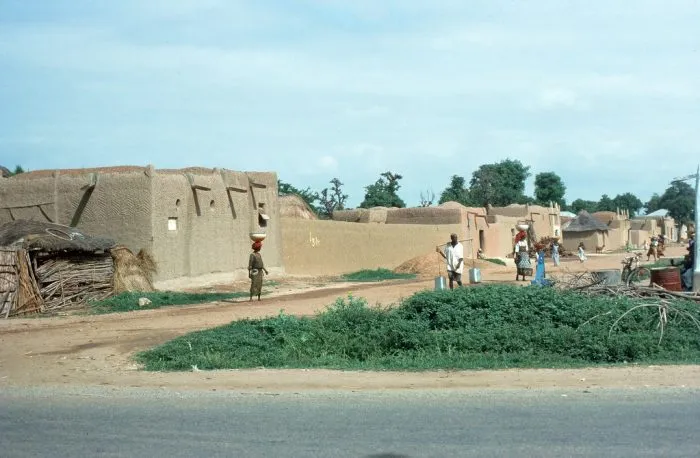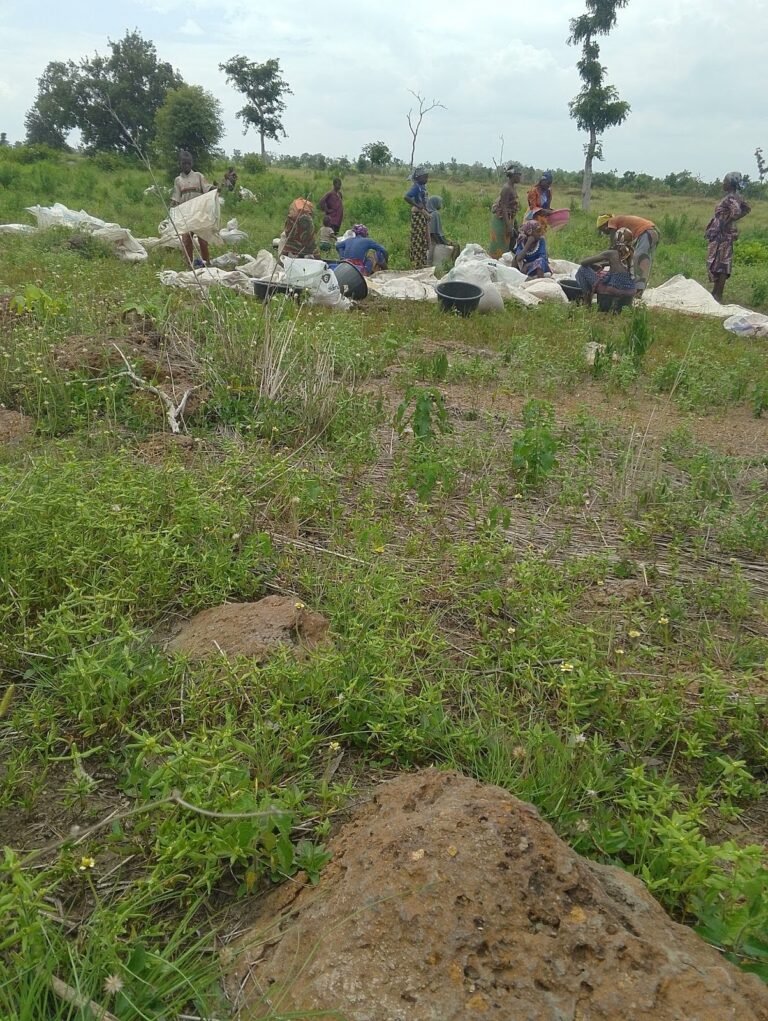As the sun rose and showered its warmth on Funtua, the district town of Funtua Local Government Area in Katsina State, some residents, who had packed their bags overnight and were ready to relocate to a new settlement, proceeded on a journey to Kano State on April 20.
The night before, terrorists had attacked the Dutsen-reme low-cost area of Funtua, killing a man.
The attack meant that Funtua, known to be a haven for neighbouring villagers displaced by bandits, was no longer safe.
“Vigilantes spent over three hours engaging them (bandits) in a heavy gunfight. Although some of them sustained injuries in the end, they were able to chase the bandits away,” Idris Muhammad, a resident.
“Bandit attacks in my community have become like doctors’ prescriptions. It now happens morning, afternoon and night.”
The people of Funtua, especially the refugees, who had come to settle in the district, feared the district town was no longer safe and their destination was not yet determined.
They were quick to connect the fresh incident to an attack that had happened two weeks earlier, at a settlement that was just a kilometre away from Dutsen-reme.
Bandits had attacked at midnight and kidnapped a nursing woman and her three-month-old baby.
The Elders’ Meeting
When the town elders discovered that a high number of people were exiting the town, they called an emergency meeting.
They agreed at the meeting that the reason for the exodus was because of the persistent attacks ravaging the area.
In a town considered one of the commercial hubs in the northwest, the elders also revealed that the attacks were not only crippling people’s businesses, but also destroying family structures.
Katsina is one of the hotspots of banditry in the northwest region. Like other local governments in the state, Funtua has become the latest addition on the list of settlements in the area that are prone to bandits’ attacks.
However, until recently, the armed groups had restricted the attacks to small villages, leaving out urban settlements. Residents also used to be convinced that the presence of security operatives in urban areas usually scare aggressors away. Now, such convictions have been punctured as a result of the recent attack on Funtua.
THE COST OF NORTH BANDITRY
Violence in the northwest and northcentral region of Nigeria has grown to become an existential threat to many residents in the regions. What started as conflicts between herders and farmers has developed into high scale banditry. According to the International Crisis Group, banditry is seen to be six times deadlier than Boko Haram insurgency.
In the first quarter of 2022 alone, about 2,331 fatalities were recorded in the country’s northwest and northcentral regions.
According to a Beacon Security Report, the regions hosted 65% of the total security incidents in the country during the period.
In addition to life fatalities, abduction, forced disappearances and internal migration are also rampant. Out of the total 1,809 abductions recorded across the country between January and March this year, the northwest alone was responsible for 1,062 cases. The region was followed by the northcentral with 464 cases.
“The breakdown further shows that 58.7 per cent of the Quarter 1 abduction figures affected the northwest region, 25 per cent affected the northcentral and 6.5 per cent affected the northeast,” the report reads in part.
“This puts the total percentage of kidnapping in northern Nigeria for January – March 2022 at 90.9%.”
Apart from the inhuman treatments the kidnappers subject their victims to, abductees are also made to pay enormous amounts to regain their freedom. Between 2011 and 2020, an SBM Intelligence Report revealed Nigerians paid over $18.34 million (N7 billion) in ransom to abductors.
THE CAUSE
“The conflict in the northwest must be understood in the context of the region’s development challenges,” a report by the Centre for Democracy and Development suggested, while researching the factors that contributed to rising armed conflicts in the northwest region.
“Northwest Nigeria contains some of the poorest states in the country. As of 2019, each northwestern state has a higher poverty rate than the national average of 40.1%,” the report also reads.
Though the low socio-economic conditions create a fertile ground for banditry to thrive, the report noted that they are not sufficient explanations for the present conflict which had emerged gradually for more than a decade.
“Today’s conflict is rooted, to a large extent, in land-use disputes that have escalated and taken on an increasingly ethnic dimension because of official corruption, the security sector’s lack of capacity and professionalism, the failures of the criminal justice system, environmental degradation and a breakdown of traditional conflict resolution mechanisms between farmers and herders,” the report explains.
The report also stressed that local vigilantes’ retaliatory tit-for-tat attacks on Fulani herder communities have also rendered a reconciliatory approach to ending the violence difficult, and that the armed military campaign against the terrorist groups, considering the recent incidents, is far away from success.
Following the sophisticated attack on the popular Abuja–Kaduna train and bandit’s invasion of a federal airport a week before, security analysts believe both the intelligence and combat ability of the bandit groups were underestimated.
To record success against the terror groups, Nnamdi Anekwe, a Lagos-based security expert said the security operatives need to adopt an intelligence-driven strategy.
“What has given us success over Boko Haram terrorist group in the recent days was the multi-national offensive in the northeast,” Anekwe said.
“The terrorists were trapped around Lake Chad areas as they faced attacks from different opposite sides. This gives them no room for escape. Unfortunately, this is yet to be adopted in the northwest and northcentral, and makes it easy for the bandits to escape military offensive.”
Ibrahim Yakubu, a Funtua indigene who recently returned to his home town, has already begun contemplating an exit plan. He had heard that out of other suburban settlements in Funtua Local Government, Funtua district area was out of bandits’ reach, but what he experienced in the last few weeks was a complete opposite.
“They are everywhere now,” Yakubu lamented. “They attack Funtua areas brazenly.”
Muhammad, who sat with the elders during the emergency meeting, doubted the ability of the security operatives’ present in the town. He feared their presence has become insignificant.
“There was a time the bandits entered an area and dared any of the residents to come out and face them. Nobody dared,” Muhammad said.















